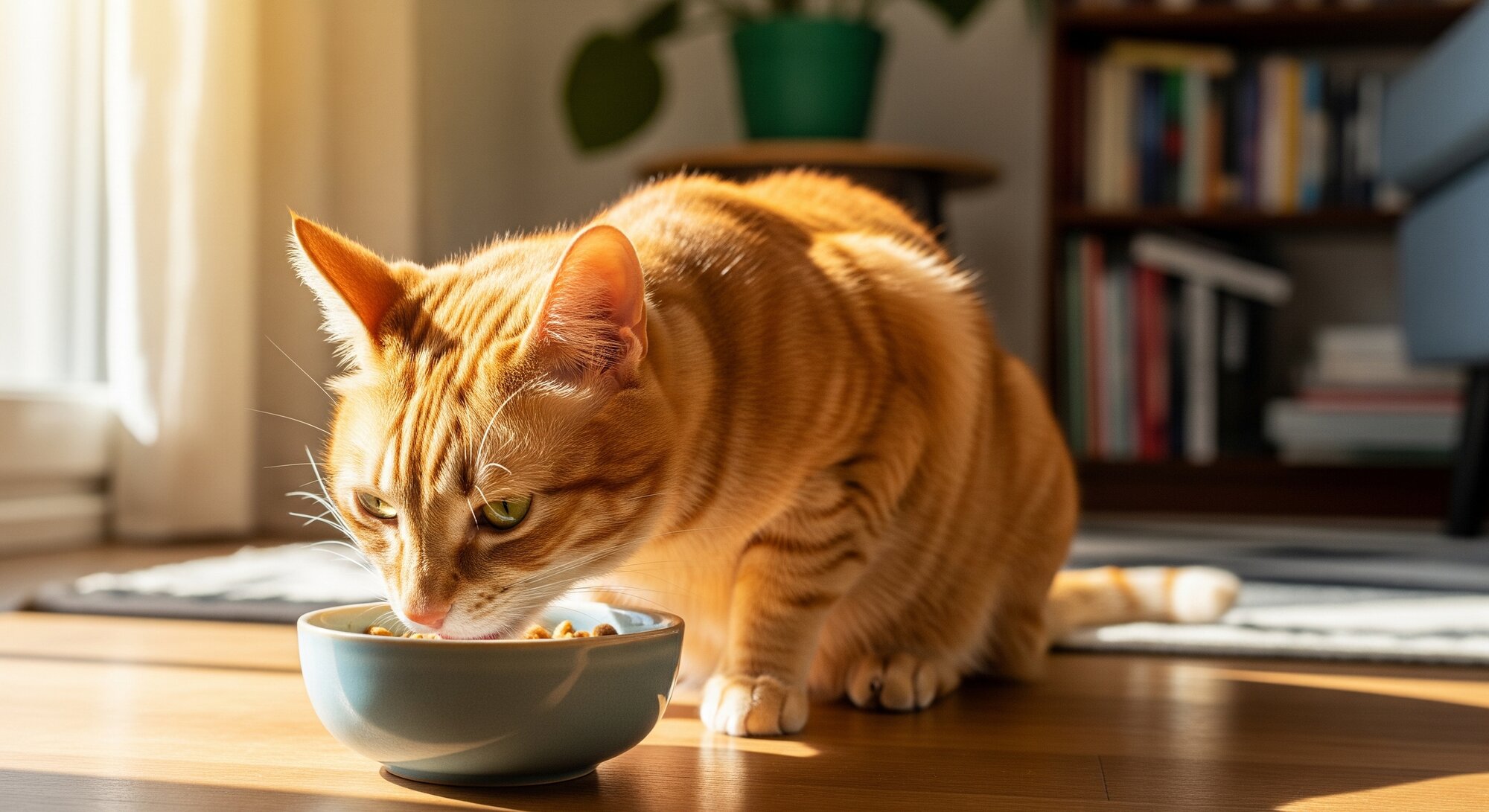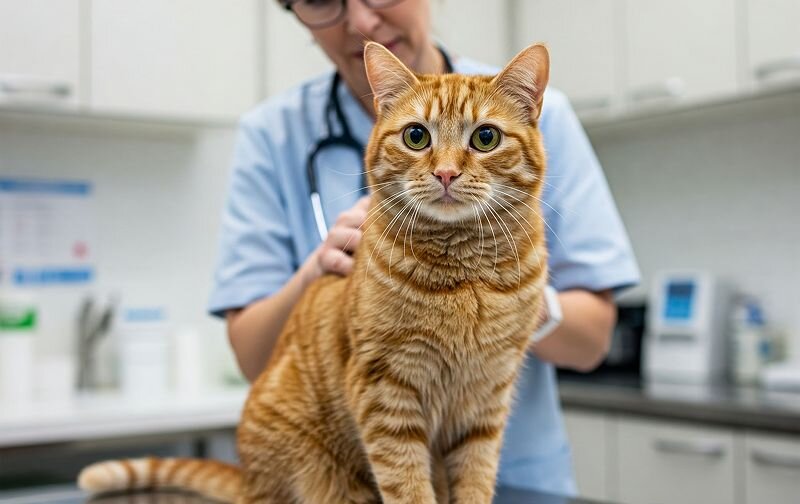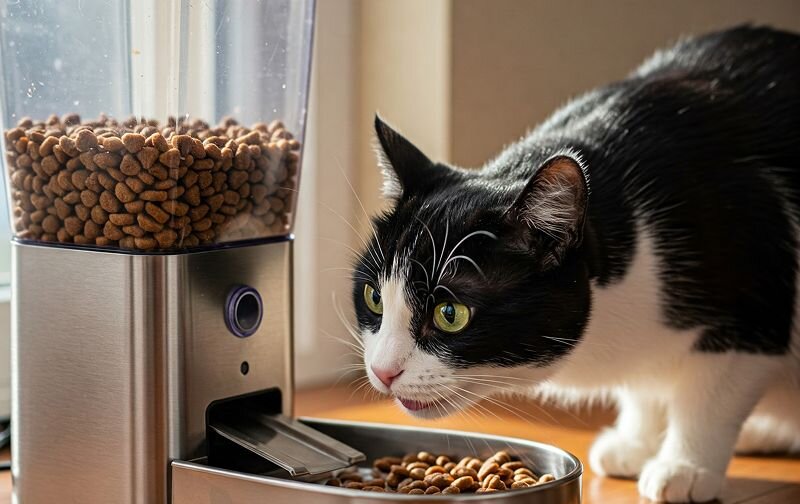1. Swallowing too much air
Cats that scoff their food too quickly swallow more air than their slower paced counterparts. This air builds up in the gastrointestinal tract over time and is eventually (and unpleasantly!) released out the other end as gas.
2. Microbial imbalance
A healthy gut is full of a diverse mix of 'good' microbes that promote an ideal environment for digestion, immunity and overall wellbeing. An imbalance of these microbes, also known as intestinal dysbiosis, can result in an overgrowth of 'bad' gut bacteria. This can then lead to flatulence and other gastrointestinal signs (most commonly diarrhoea and/or bloating). Dysbiosis can occur due to a recent course of antibiotics, stress, a sudden diet change, or a parasitic infection, just to name a few. As you can imagine, these 'bad' microbes produce their fair share of unpleasant gas!
3. Sensitive stomach
While it's well known that a lot of dogs love to eat things around the house or yard, some cats share this unfortunate trait and it can be a battle to keep them away from undesirable foods! Spoiled food, as well as certain treats and table scraps, can cause an upset stomach and flatulence in some cats. Similarly, a low quality, poorly digestible diet can lead to chronic gastrointestinal symptoms. Some cats are quite sensitive to high levels of fibre or legumes in their diet, both of which produce gas when digested. Others may be sensitive to a high carbohydrate diet.
4. Food allergies
While a food allergy rarely causes flatulence only, it's an important option to consider especially if accompanied by other signs.
Cats can develop allergies to food proteins at any point during their lives, and can even become allergic to proteins in food they've eaten for years! Allergies are most often to very common proteins such as fish, chicken, beef and dairy (contrary to popular belief, most cats are lactose intolerant). It differs from a 'sensitive stomach' in that there is a true allergic response that occurs when the protein crosses the gut wall into the bloodstream, causing them to become sensitised to the protein. This allergic reaction most commonly manifests as itchy skin but can also lead to gastrointestinal signs, including flatulence.





